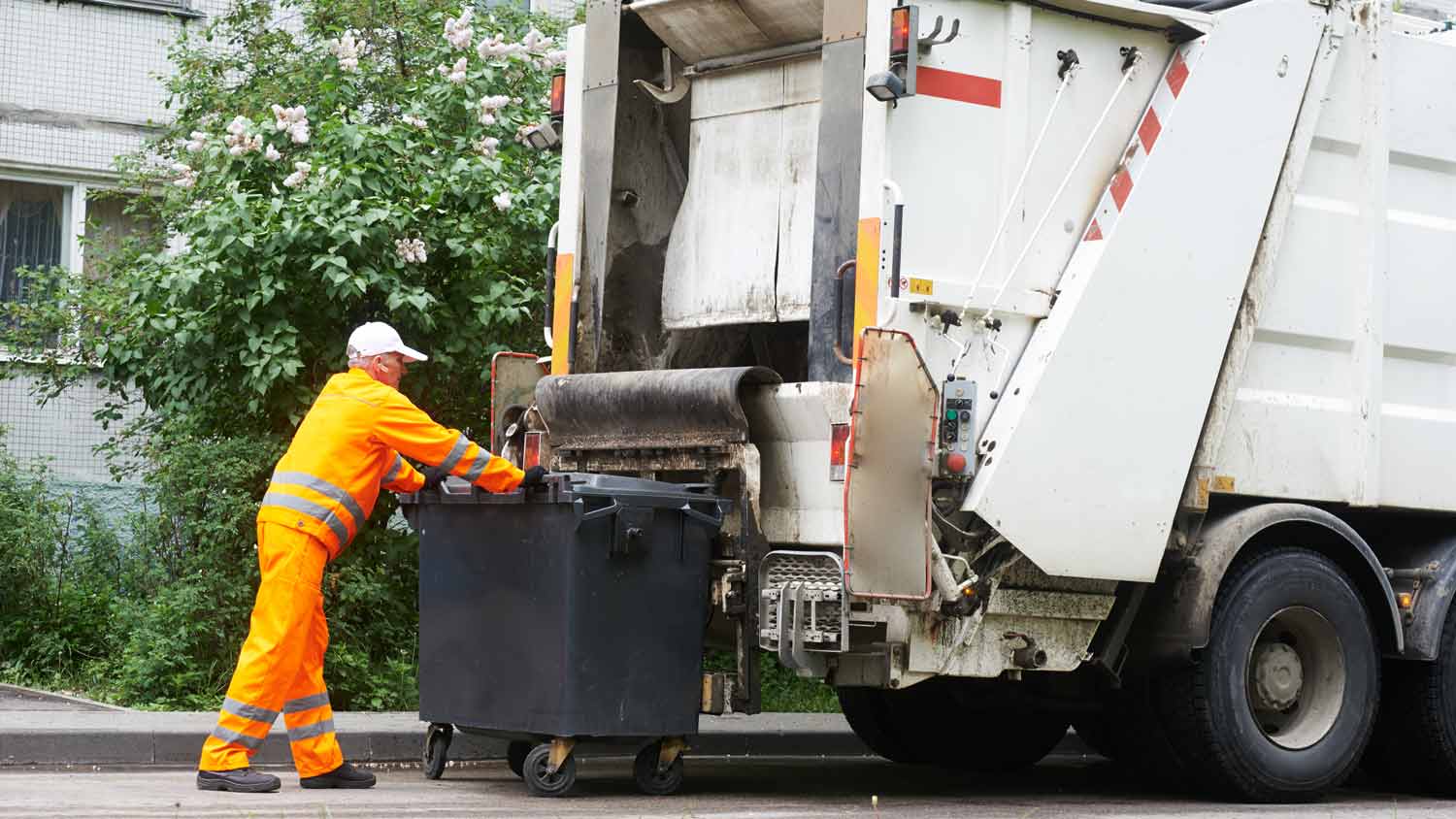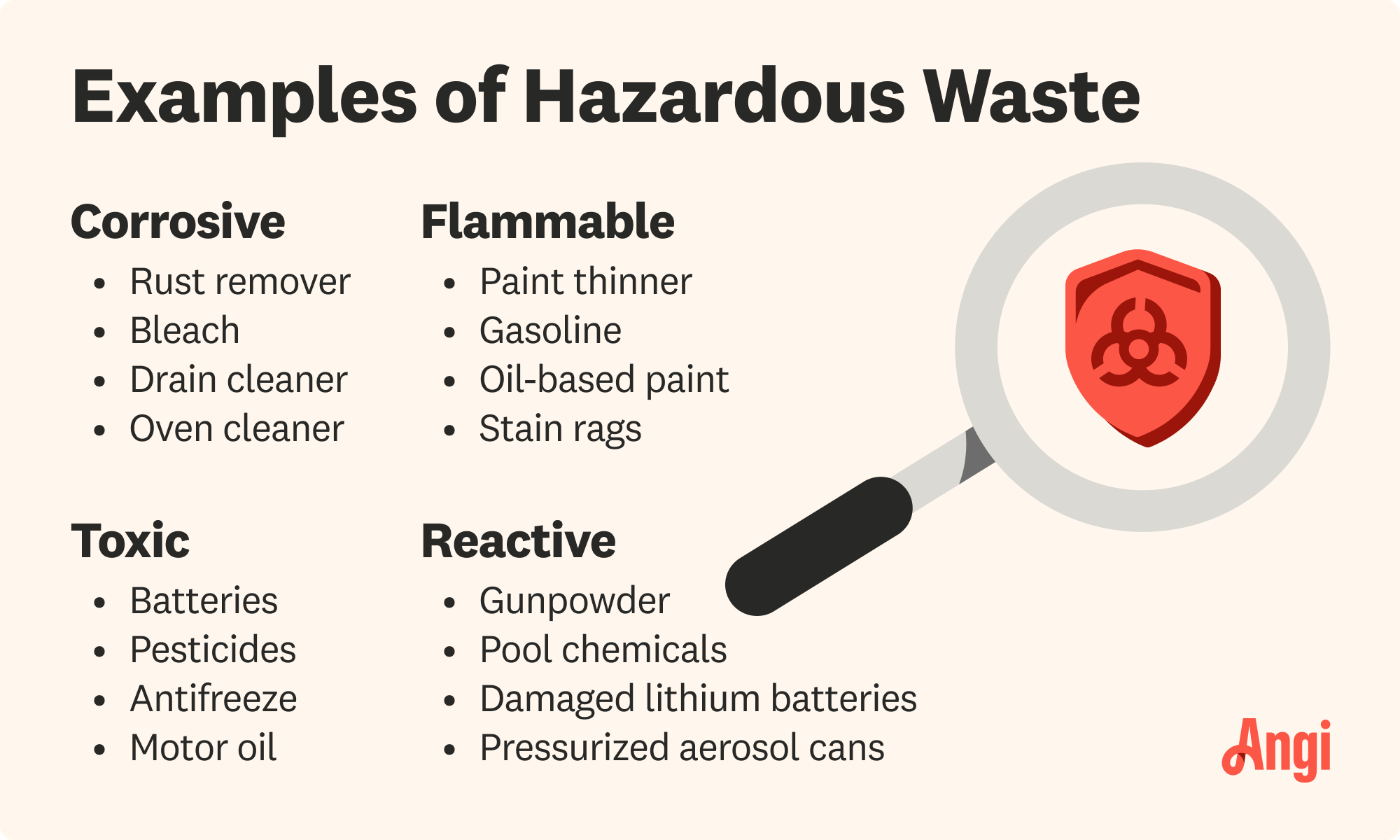
Mattresses are considered hazardous waste, so you’ll likely have to pay disposal fees. Use this guide on mattress removal costs to see what your total will be.
Limit the hazards of hazardous waste with proper disposal


Treatment Storage and Disposal Facilities (TSDFs) are responsible for disposing of hazardous waste. TSDFs are facilities that receive and handle the treatment and disposal of hazardous waste to ensure they are safely disposed of to reduce their environmental impact. To work at a TSDF, you must undergo training for the job to ensure all disposal is done properly.
Hiring TSDF workers is essential when it comes to disposing of hazardous waste. So, if you’re looking to dispose of things such as old paint, gasoline, or aerosol cans that aren’t completely empty, here are a few benefits of hiring TSDF workers:
TSDF workers know what is considered hazardous waste and can inform you of what materials you should be disposing of and how.
It mitigates the environmental impact of hazardous waste.
It reduces the risk of harming your own health and safety.
It’s not advised to place hazardous waste materials in your dumpster without first consulting your dumpster rental company. If these items make their way to the landfill, they (in most circumstances) will be returned to you, and you will face a fine of up to $500.

While it may seem like a simpler option, garbage removers don’t dispose of hazardous waste, so you can’t hire them to do so. Garbage removal services can dispose of large garbage items, but this does not include hazardous waste as the disposal process is different. Hiring garbage removers to dispose of hazardous waste is a big risk, as disposing of it improperly can lead to major safety issues such as fires or explosions.
If you’re looking into hiring garbage removers, contact garbage removal services near you and ensure the garbage you’re planning to dispose of fits their criteria. If they deem any of it hazardous waste, you should contact a TSDF to arrange for proper disposal.

Once you have either dropped off your hazardous waste at a TSDF or had it picked up, TSDF workers will dispose of the waste by either recycling it or treating and disposing of it in landfills or incinerators.
Chemical experts will recommend what type of waste removal solution is needed based on the type of waste. From there, they will use the solutions to neutralize pollutants to protect groundwater and surface water before putting the waste in secure landfills.
Although general junk removal costs $140 to $380, hazardous waste costs more to get rid of. That’s because hazardous waste requires specialized disposal and recycling techniques; you can’t simply dispose of it with your other household waste. The cost depends on the type of hazardous waste you have to dispose of:
Batteries: $0.10–$10.25 per pound
Electronics: $0.80–$1.50 per pound
Household cleaners and pool chemicals: $4 per pound
Lawn chemicals: $2.25–$4 per pound
Fire extinguishers: $8–$12 each
Refrigerators: $50–$150
Freezers: $100–$200
Window AC units: $50–$90
Disposing of hazardous waste is a serious matter—knowing who disposes of hazardous waste is so important. So, in short—no, you can’t DIY hazardous waste disposal. It requires proper health and safety training to ensure you’re not putting yourself, others, or the environment at risk.
While the actual disposing of hazardous waste must be done by a professional, you do have the option to either arrange a pick up by a TSDF or drop it off yourself. Depending on where you live, dropping it off yourself may reduce the hazardous waste disposal cost.
From average costs to expert advice, get all the answers you need to get your job done.

Mattresses are considered hazardous waste, so you’ll likely have to pay disposal fees. Use this guide on mattress removal costs to see what your total will be.

Get clear answers on oil tank removal costs, including average prices, key factors, and ways to save. Learn what impacts your project and how to budget.

Need to get rid of paint, solvents, or other chemicals? Use this guide on hazardous waste disposal costs to see what professional removal will cost.

If you’re doing a roof replacement project, you might be wondering: Can asphalt shingles be recycled? Discover how to recycle asphalt responsibly.

Grills are bulky, which means your regular sanitation schedule likely won’t account for disposal. Learn how to dispose of a grill properly and affordably.

If you are wondering how to compost yard waste, we share the best methods for homeowners, including helpful tips.